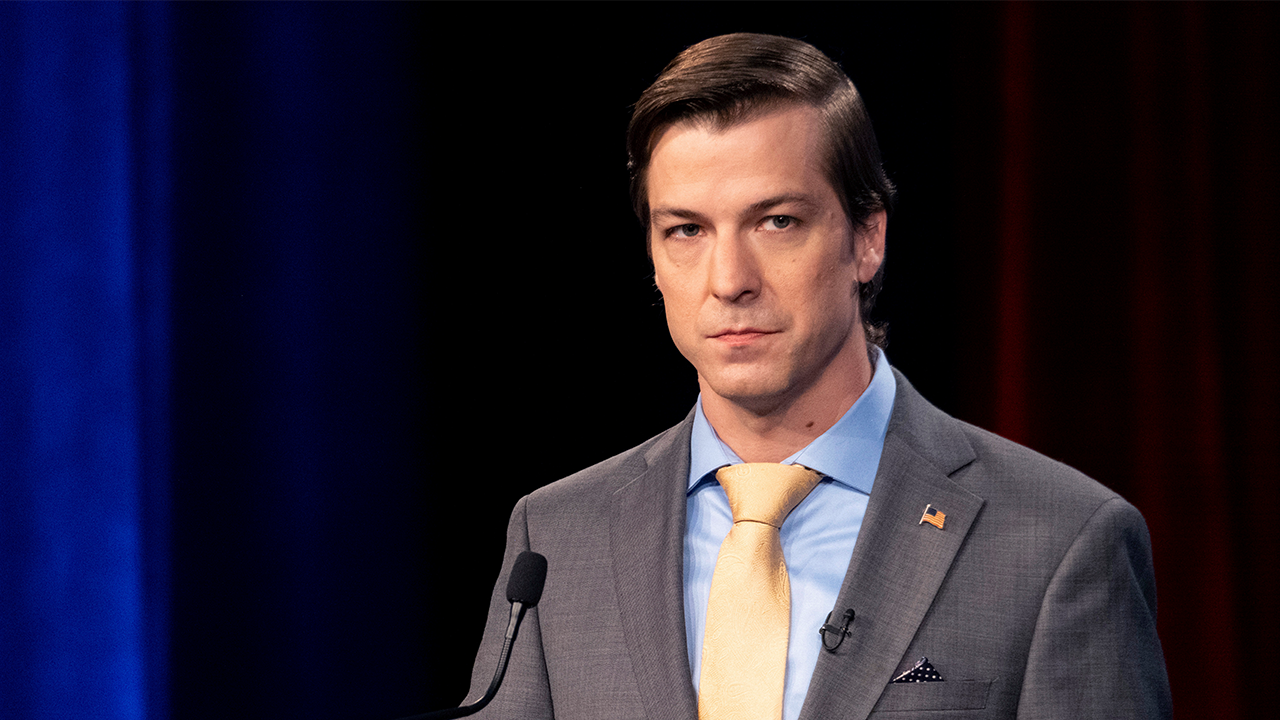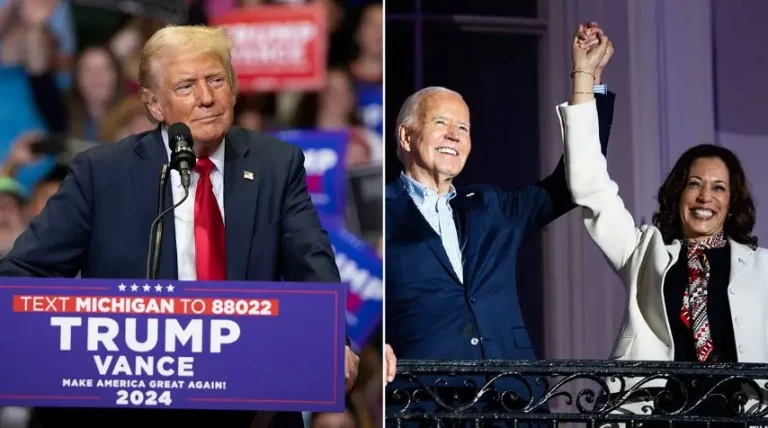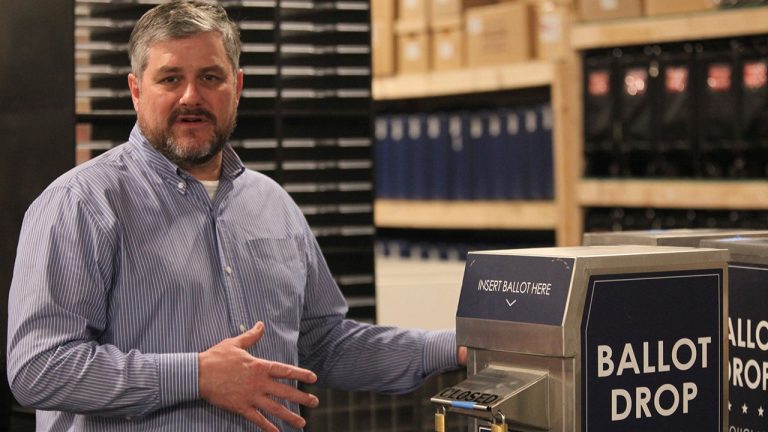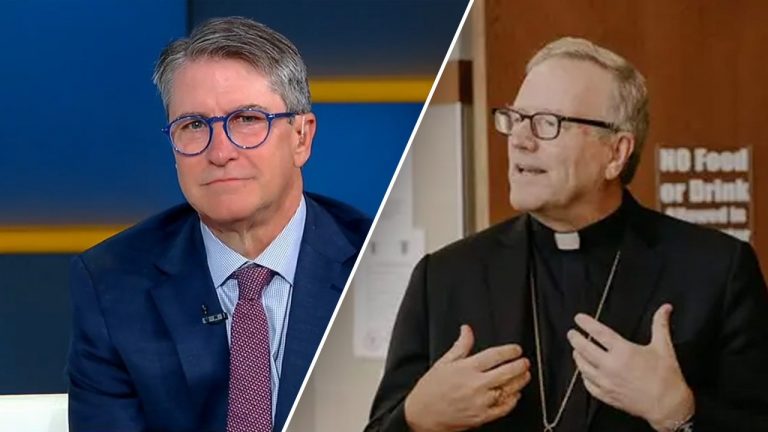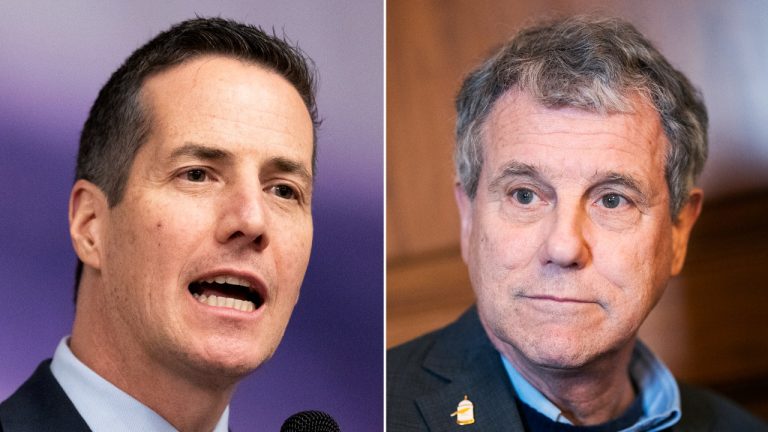Libertarians choose Chase Oliver for president, don’t back Trump or RFK Jr.
The Libertarian Party recently made waves by nominating political activist Chase Oliver as its presidential nominee at the party’s convention. This decision came after rejecting former President Trump and Robert F. Kennedy Jr.’s bids for the nomination, marking an unexpected turn of events.
Oliver secured the nomination after an intense seventh round of voting, where he managed to clinch nearly 60% of the final vote. His victory was particularly significant as he started off in second place for the first five rounds, gradually building support as the voting progressed. In the end, he managed to surpass the 50% threshold required for victory, defeating even the “none of the above” option.
One of Oliver’s main opponents in the race was professor-turned-podcaster Michael Rectenwald, who had been leading in the first five rounds before being eliminated in the sixth round. Oliver’s victory was solidified after fellow candidate Mike ter Maat endorsed him in exchange for becoming his vice-presidential pick. This strategic move helped bolster Oliver’s support in the final rounds, leading to his ultimate triumph.
In his victory speech, Oliver expressed his commitment to spreading a message of liberty and hope to all individuals, whether they identify as libertarians or not. He highlighted his vision for a future focused on small government, individual freedoms, and policies that support fundamental rights without encroaching on the rights of others.
The Libertarian Party’s platform emphasizes values such as opposing war and military intervention, the War on Drugs, the death penalty, surveillance on citizens, excessive taxation, and pandemic-related restrictions. On the other hand, they advocate for gun rights, LGBTQ+ rights, freedom of expression, and other liberties that uphold the principle of individual autonomy.
Former President Trump’s appearance at the Libertarian convention stirred controversy, with some attendees voicing their disapproval through boos during his speech. Despite his presence, Trump did not secure the party’s nomination and received minimal write-in votes, underscoring the party’s preference for a candidate like Oliver who aligns closely with their principles.
Another notable figure in the mix was independent presidential candidate Robert F. Kennedy Jr., who delivered a speech at the convention criticizing both Trump and President Biden’s handling of the COVID-19 pandemic. While Kennedy received a more positive reception from the audience, he ultimately garnered limited support in the voting process.
As the newly minted nominee, Chase Oliver has outlined an ambitious agenda that includes major cuts to the federal budget, the abolition of the death penalty, the closure of overseas military bases, and the cessation of military aid to conflict-ridden regions like Israel and Ukraine. Additionally, he has expressed support for pardoning individuals like Julian Assange, Edward Snowden, and Ross Ulbricht, highlighting his stance on issues of transparency and civil liberties.
Oliver, an activist hailing from Atlanta, Georgia, has already made his mark in the political arena by forcing a runoff in the Georgia Senate election and running for a seat in the U.S. House. His nomination signifies a significant shift within the Libertarian Party, as it marks a departure from the influence of the Mises Caucus, a right-leaning faction that previously dominated the party.
Overall, Chase Oliver’s ascent to the presidential nomination reflects the party’s commitment to championing individual freedoms, limited government intervention, and a bold vision for a more libertarian future. As he embarks on his campaign journey, Oliver seeks to engage a diverse range of voters with his message of liberty and positivity, aiming to appeal to both seasoned libertarians and those who have yet to discover the libertarian ethos.


